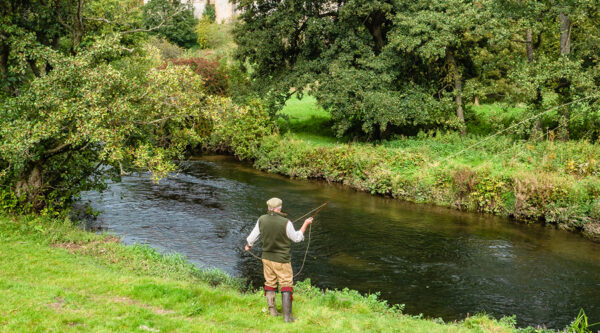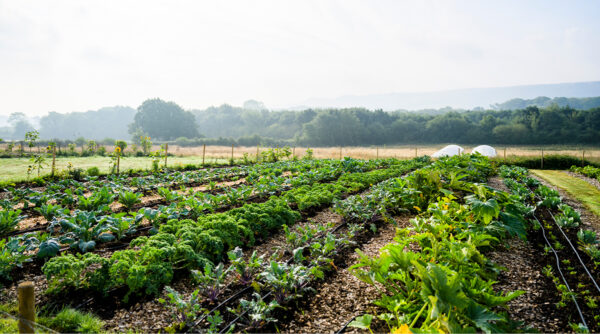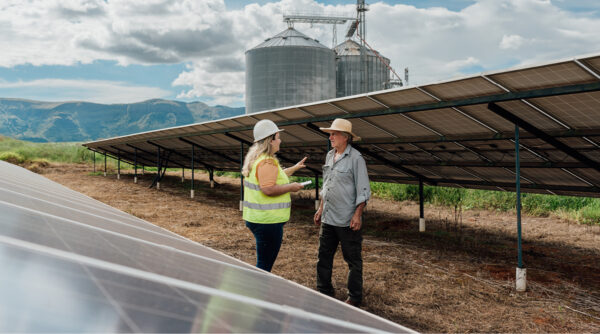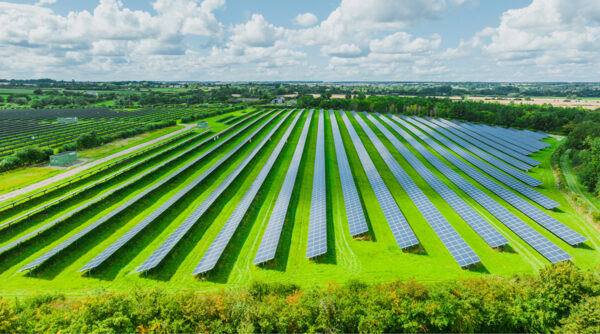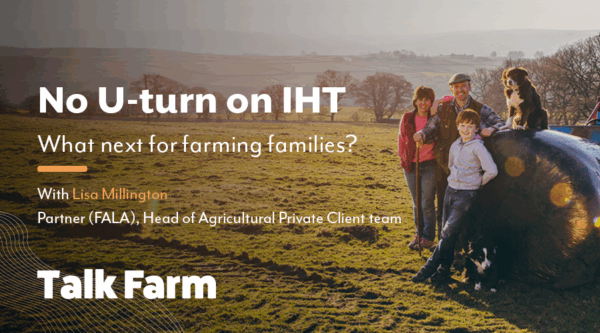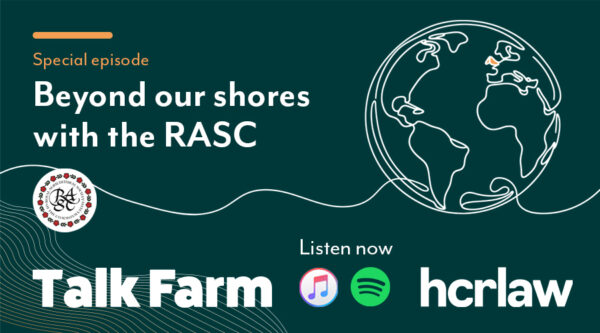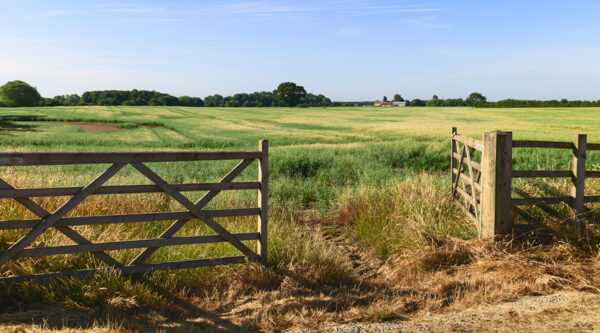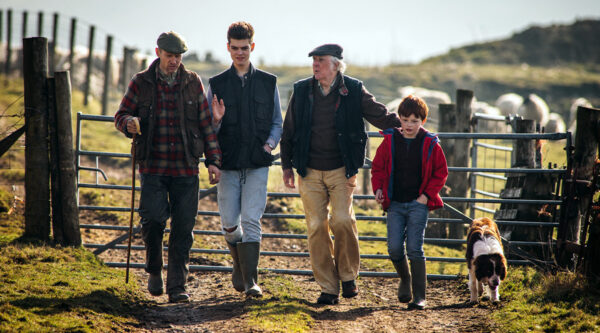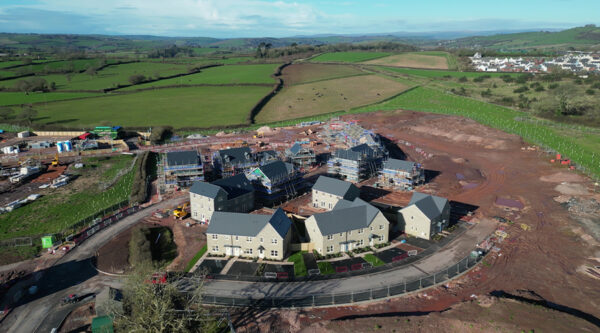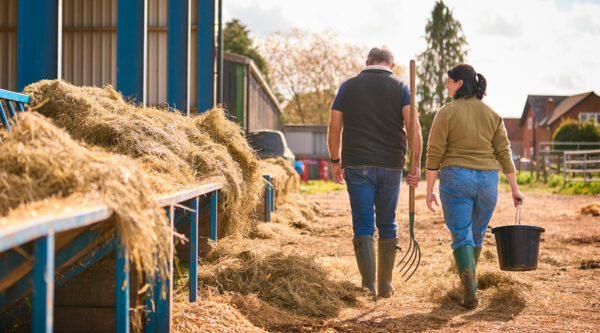
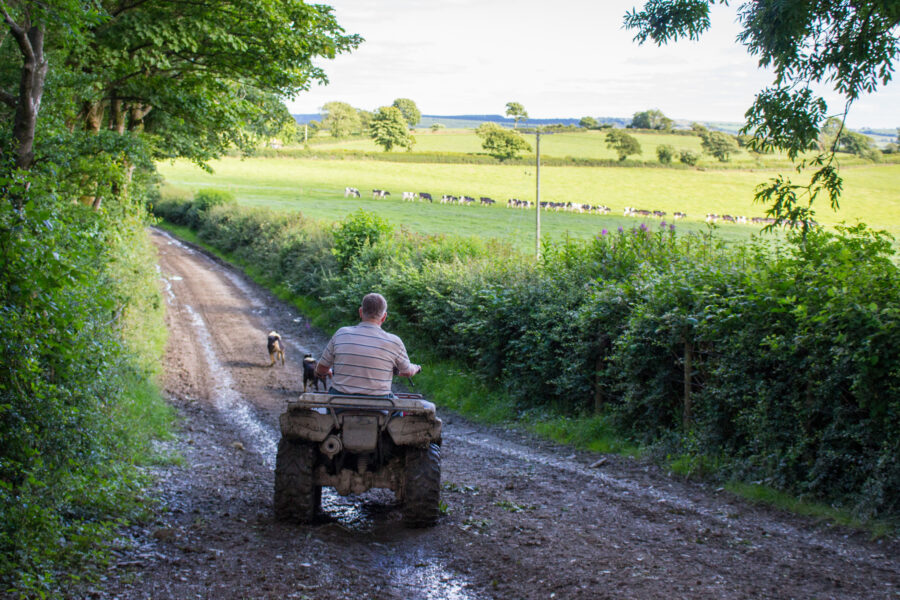
We all depend on farmers to produce the food we eat. Farmers, in turn, rely on stable weather patterns, good soil health and an abundance of pollinating insects to grow that food.
So how do farmers continue to produce food in a world facing rapid climate change and a biodiversity emergency?
This is the question that farmers and the English and Welsh governments have had to grapple with following the UK’s exit from the Common Agricultural Policy. The resulting policies, the Environmental Land Management Scheme (“ELMs”) in England and the Sustainable Farming Scheme (“SFS”) in Wales, mark a generational shift from the post-war drive to for ever-increasing food production at all costs to a focus on “public money for public goods”.
The final consultation by the Welsh government on the SFS closed on 7 March 2024. The day before, farmers from across Wales lined up 5,500 wellies outside the Senedd – one boot for every job NFU Cymru says will be lost under the Scheme.
Just under two weeks later, Vaughan Gething replaced Mark Drakeford as First Minister of Wales and several national farming organisations including the NFU, CLA and NSA called for a “reset” of farming policy in Wales. The newly appointed Cabinet Secretary for Climate Change and Rural Affairs, Huw Irranca-Davies stated, however, that whilst there are some “knotty issues” to be ironed out, farmers are unlikely to see wholesale changes to the proposals.
Mr Irranca-Davies has now announced that the SFS will be pushed back a year to 2026.
Where does this leave Welsh farmers?
Further uncertainty is unlikely to assist farmers’ long-term planning, but it does provide an extra year of financial stability under the Basic Payment Scheme whilst the Welsh government work out the “knotty issues”.
The one attracting most attention is the requirement for farmers to have 10% of their plantable land planted with trees. Reading the consultation it is clear that some of the nuance of the proposals has been lost in the headlines. Greater clarity is needed, however, particularly around the methodology for calculating “plantable” land to address legitimate concerns over of the loss of land for food production.
Elsewhere, much of the jargon in the consultation will be more familiar to professionals used to working behind computer screens than farmers used to working outdoors. Farmers will be required to complete annual “CPD” – Continuing Professional Development – and to monitor their businesses against “KPIs” – Key Performance Indicators.
The aims of these policies are worthy: to help farmers identify where they can reduce costs or make better use of resources. In reality, farmers are already doing these things and entry into the SFS will simply result in an increased administrative burden for recording and reporting on their good work.
This might not be a barrier to entry if the rewards justify the effort. However, there is very little detail in the consultation about the sums farmers will receive. The Welsh government admit that “it is difficult to commit a specific level of funding to the Sustainable Farming Scheme which starts in 2025”. The consultation states the Universal Baseline Payment for farmers will be “an estimate of the cost incurred and income forgone” for carrying out the universal actions alongside a proposal to “reflect the social value of outcomes realised by sustainable land management”. As it stands, it’s hard to know whether the payments available will be enough of an incentive to join the scheme.
With hope, the delay will give the Welsh government time to address the shortcomings, particularly around the likely payments available. “Public money for public goods” is a two-way street. If we expect farmers to save the planet, we need to pay them to do so.
